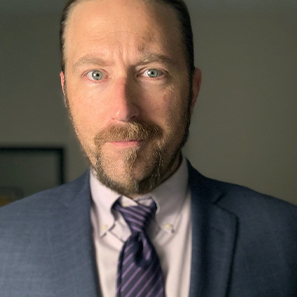
Erik L. Peterson
Associate Professor
Associate Provost, Office of Academic Affairs
- elpeterson@ua.edu
- (205) 348-1852
- 203 Rose Administration Building 245 & ten Hoor Hall
- Website
Education
- PhD, University of Notre Dame, 2010
Research Areas
- History of Race
- European History
About
Research Interests
- History & Philosophy of Science & Medicine
- Race science, Social Darwinism, & eugenics
- Evolution, Genetics, & Epigenetics
- Biology Education in the USA, UK, and Europe
- Victorian/Edwardian UK & Gilded Age/Progressive Era US
Current Projects
- In development (expected 2028). Darwin vs. Chesterton vs. Wells: Who Killed British Eugenics?
- Under contract (expected 2025). History & Philosophy of Science, Key Reflections; Part III: Late Enlightenment / Eighteenth and Nineteenth Century (1750 to 1900). New York: Bloomsbury (with E. Crull, City University of New York).
- Under contract (expected 2024). The Shortest History of Eugenics. New York: The Experiment.
- In production (expected 2023). Understanding Charles Darwin. Cambridge Understanding Life series. Cambridge, UK: Cambridge University Press.
- “Speaking of Race“–the interdisciplinary podcast about the history of race & science.
- A Deeper Sickness online: the Digital Museum of the Pandemic Year, 2020.
Courses Taught
- Foundations of Medical Humanities (IDMD 102)
- History of Science/Medicine 1: Stonehenge to Magnets (HY 115)
- History of Science/Medicine 2: Gravity to Genomes (HY 116)
- Evolution for Everyone (ANT 150)
- A Global History of Gaming (HY 307)
- Race & Science (HY 345)
- Epidemics! A History of Medicine (HY 346)
- Darwin’s (R)evolution (HY 455)
- Blood & Guts & Toilets in Victorian Britain (HY 494/495(H))
Awards and Honors
- Distinguished Teaching Fellow, The University of Alabama (2017-2020)
- Outstanding Student Advisor Award, The University of Alabama (2015)
- Honored Instructor Award, University of Wisconsin – Madison (2011)
- National Science Foundation Dissertation Improvement Grant, SES-0849138 (2009 – 2010)
Selected Publications
- In production (expected fall 2023). “Myth: That Darwin’s Hatred of Slavery Reflected His Belief in Racial Equality,” Darwin Myths & the Nature of Science, edited by K. Kampourakis. Cambridge, UK: Cambridge University Press.
- 2023/a “A ‘Fourth Wave’ of Vitalism in the Mid-20th Century?” Vitalism & its Legacies in the Twentieth Century, edited by C. Donohue and C.T. Wolfe. Cham, Switz.: Springer Nature.
- 2023/b “The Racist Origins, Purity Assumptions, and Racialist Connotations of the Concept of ‘Admixture’ in Human Evolutionary Genetics,” Genetics (with K. Kampourakis, University of Geneva). JIF (5-yr): 4.795 [Q2 in Genetics/Heredity].
- 2022/a A Deeper Sickness: Journal of America in the Pandemic Year, 2020. Boston, MA: Beacon Press (with M. Peacock, The University of Alabama).
- 2022/b “The Third-Way Third Wave: The Enduring Appeal of Bioexceptionalism,” Theoretical Biology Forum 115(1-2): 13–28. JIF (2021): 0.455
- 2021/a “Race & Ethnicity: Historical and Contemporary Issues,” in The Handbook for Cultural Anthropology, edited by L. Cliggett and L. Pedersen. New York: Sage Publications (co-authored with L. J. Weaver, University of Oregon).
- 2021/b “‘What is Dead May Not Die’: Locating Marginalized Concepts Among Ordinary Biologists,” Journal of the History of Biology (co-authored with C. Hall, Bowdoin College).
- 2020 “What Methods Do Life Scientists Use? A Brief History with Philosophical Implications,” in Philosophy of Science for Biologists, edited by K. Kampourakis and M. Uller. Cambridge: CUP.
- 2019 “Can Science Sort the Wheat from the Tares? A Brief History of Bias (and Worries About Bias) in Science,” in What is Scientific Knowledge? An Introduction to Contemporary Epistemology of Science, edited by K. McCain and K. Kampourakis, 195–211. London: Routledge.
- 2017/a The Life Organic: The Theoretical Biology Club and the Roots of Epigenetics. Pittsburgh, PA: University of Pittsburgh Press.
- 2017/b “Race and Evolution in Antebellum Alabama: the Polygenist Prehistory We’d Rather Ignore,” in Evolution in the American South, edited by A. Glaze, C. Lynn, W. Thompson, L. Reed, 33–59. New York: Palgrave Macmillan.
- 2017/c “‘So Far Like the Present Period’: a Reply to ‘C.H. Waddington’s Differences with the creators of the Modern Evolutionary Synthesis: a Tale of Two Genes’,” History & Philosophy of the Life Sciences 39: 19-22.
- 2015 “Mendel, Mendelism, and Education: 150 years since the ‘Versuche’,” Science & Education 24 (1&2) Berlin: Springer: 1-228 (special book-length double issue co-edited with K. Kampourakis, University of Geneva).
Recent talks
- 2022
- “Race & The Descent of Man,” Symposium on Darwin Mythology; University of Geneva, Switzerland.
- “Creating A Deeper Sickness,” American Advertising Federation of Tuscaloosa.
- “A Deeper Sickness: Disease and Disinformation,” OPCAM Politics Broadly, The University of Alabama.
- “The Historical Roots of the Public Health Responses to COVID-19 in the South,” American Historical Association, Annual Convention, New Orleans, Louisiana.
- 2021
- Presented “Afraid of the Dark: John Beddoe and the Building of the ‘Index of Nigressence’” and chaired/organized “Building Race into the Machine: Race, Big Data, and Algorithms,” History of Science Society/Society for the History of Technology, Annual Convention. New Orleans, Louisiana.
- “Creating the Digital Museum for Deeper Sickness,” Digitorium 2021, Annual Convention. Tuscaloosa, Alabama.
- “Sustaining an Interdisciplinary Podcast,” Humanities Podcasting Symposium, NYU Center for the Humanities.
- 2020
- Chair/commenter on “Racial Bodies of Knowledge: Reformulations of Human Difference in Physical Anthropology,” History of Science Society, Annual Convention. Zoom conference.
- “Anti-Evolutionism was Really About Race,” American Association for the Advancement of Science, Science for Seminaries.
- “Charles Darwin & the Church: Not the Story You’ve Been Told,” Inherit the Wind at Theater Tuscaloosa.
- 2019
- “How the West was lost: Revisiting the supposed failure of Anglo-American theoretical biology,” History of Science Society, Annual Convention. Utrecht, Netherlands (presented in absentia).
- “Darwin & Evolution: Misconceptions that make teaching more difficult,” National Science Teachers Association, Annual Convention, St. Louis, Missouri.
- “Human Biodiversity Studies = Just Bad-Old Race Science,” ALLELE, The University of Alabama.
- “Josiah C. Nott’s Impact,” Evolution for Everyone, The University of Alabama.
- “Darwin, Wallace, and the (quite possibly) Racist Birth of Anthropology,” University of Missouri.
- “Who’s Afraid of ‘23andMe’? Some Implications of ‘Recreational Genomics’,” Boston College.